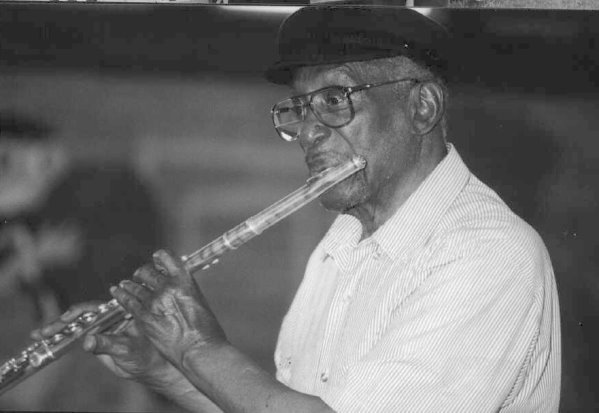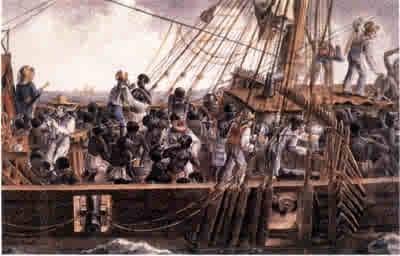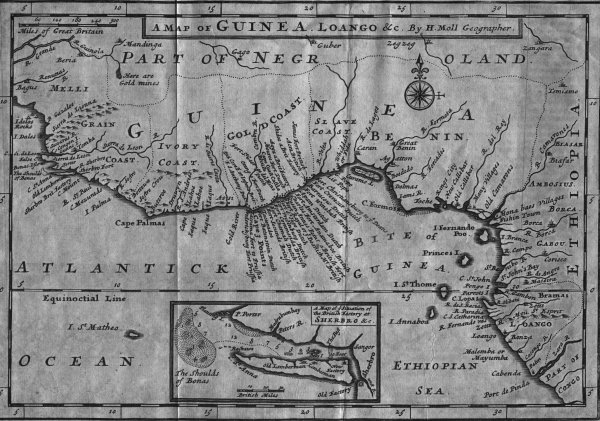John Newton
|

Willie George
Slave trade in England was big business and initially the church supported it. A preacher named John Newton was one of the first clergymen to attack slavery after becoming a “changed man”. John Newton was a slave trader in the mid 1700’s. He had considered his trade to be honorable as did most Europeans of the time. He shared in the common practice of sexually abusing slave women and using torture devices such as thumb screws to control them.
“ Newton shared in the brutality against his fellow creatures. If naval, life had been brutal it was for a high cause. The Slave Trade was for gain, and in 1745 not a pen nor a tongue had questioned or condemned it. In old age John Newton revealed what it had done to his character as a young man when he told a Committee of the Privy Council, from his own experience, that he knew no method of getting money which had so direct a tendency to efface the moral sense, to rob the heart of every gentle and humane disposition and to harden it like steel."
"About a third of the cargo was female. As black women and girls came on board, naked, trembling, terrified, almost exhausted with cold, fatigue and hunger, they were exposed to the wanton rudeness of the crew. The poor creatures could not understand English, but looks and manner were sufficiently intelligible as in imagination the prey was divided upon the spot for future use... John Newton let lust run unchecked. His heart lay with Polly but his body refused to be denied. Since the women were kept on deck at liberty in daytime, a seaman’s opportunity came easily and he need ask no consent, since resistance or refusal would be in vain. Sometimes, he might take one at night while on duty, for owing to the heat and filth the crew went naked in the holds where the women lay, especially before the holds grew crowded. Any consequence would be born far away in the sugar islands, perhaps adding to the profit of the voyage. It is a curious fact that there may be American or Caribbean blacks in whose veins runs the blood of John Newton.”
John Newton changed as his love for Jesus grew and as it did he found slavery to grow increasingly distasteful. Jesus said “No one can slave for two mastrs; for either he will hate the one and love the the other, or he will stick to the one one and despise the other. You can not slave for God and for riches.” (Matthew 6:24).
Newton found himself selling his soul for profit. Eventually, he became a preacher and one of the first abolitionist to fight slavery and racism in England. As his love for Christ grew strong he found less of a need to place himself above others until eventually he was as humble as the slave.
“The University of New Jersey offered a honorary Doctor of Divinity to Newton and he said that ‘the dreary coast of Africa had been his university and he would never accept any diploma ‘except from the poor blacks’“
John Newton is not remembered as a slave trader nor as an abolishionist, but Newton is known for writing one of the most popular hymns written. Newton revealed his transformation from slave trader to soldier of the cross in a song that he wrote called “Amazing Grace”.
Amazing
grace, how sweet the sound
That saved a wretch
like me !
I once was lost, but
now are found,
Was blind but now I
see.
Narrator
Although the song is well remembered, the story behind the song is seldom told. It is not inconceivable to think that many slave masters sang that hymn on their way home from church.

Top Deck of French Slave Ship, Color lithograph by Pretexat Oursel, 19th cent., original in Musée d'Histoire de la Ville et du Pays Malouin, Saint Malo, France. This scene describes how slave men were separated from slave women once aboard the slave ships. The women were frequently molested by the slave ship crew during the voyage.

1731 Map of West Africa Slave Ports
Copyright © 2006 The Gospel Army Black History Group. All rights reserved.
Revised: 06/10/08.